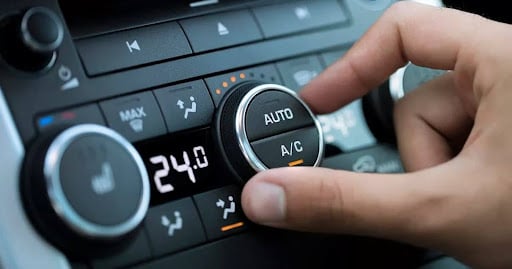If your car AC does not work, even a short trip feels hot and horrible. From compromised airflow to foul smells, minor AC problems can turn into gargantuan issues if not addressed. Understanding common problems and how to fix them can get you comfortable and cool once more. Here are seven AC problems and simple solutions to get them up and running.
Contents
1. Weak Airflow from Vents:
If your Car AC vents don’t blow any air whatsoever, even full-blast, that’s infuriating. Nine out of ten times, it’s due to a clogged cabin air filter, dirty evaporator coil, or malfunctioning blower motor. At other times, it is a mechanical failure in the fan assembly. One of the most neglected but vital repairs is to regas car aircon systems when refrigerant levels are low. This can make a huge impact on airflow efficiency. Begin by changing the cabin filter. If issues continue, have a mechanic investigate the blower motor and duct for more serious faults.
2. AC Blowing Warm Instead of Cold:
There is nothing worse than turning up the Car AC during the summer and receiving hot air instead of cold air. It is most likely in most instances a sign of low refrigerant, a faulty compressor, or faulty electrical parts such as fuses and switches. A bad pressure sensor or clogged expansion valve can also stop the cooling. Check that the compressor is coming on when the car AC is turned on; if not, the compressor could have to be replaced. Getting the system inspected early can help cost less to repair. Daily upkeep keeps your AC humming with the cool air you need.
3. Bad Odour When AC Is On:
When you turn on your Car AC and get wet, mouldy air blowing into the room, there is probably mould in the vents or evaporator coil. It is also more likely to be so when it is hot, humid, or when the AC has not been operated in years. Sanitising vents with an AC treatment spray can be a temporary solution. A deep cleaning by a professional might be necessary for a long-term fix. Running the fan without cooling for some minutes and parking from time to time can prevent this clogging as well.
4. AC Making Unusual Noises:
The abnormally produced noises, such as rattling, hissing, or buzzing, from the car AC system are warnings that something is amiss. These noises may manifest themselves in the guise of the worn fan motor, loose part, or internal compressor failure. A hissing sound might be refrigerant escaping from the system, which must be addressed right away. If you ignore such sounds, you may welcome bigger and costlier damage. The quicker you find the source of the sound, the higher your probabilities of avoiding a breakdown.
5. Water Leaking Inside the Car:
Water puddles forming in your car’s footwell after you have used the AC can be intimidating. This is most often due to a clogged or loose condensate drain pipe, where the system drains out water. When drainage is not proper, water enters and drips within the cabin. This causes mould, rust, and odours over time. A clogged drain can typically be cleared by compressed air or a flexible drain rod. If it continues to be a problem, a mechanic would have to go in and refit the hose. Regular AC maintenance prevents drain problems prior to causing water damage.
6. AC Compressor Not Turning Off:
Continuously operating compressor, even when you turn the system off, can be an indicator of a bad pressure switch, control module, or defective relay. Continuous operation overloads the compressor and burns it out, as well as increases fuel consumption. In other cases, the issue is caused by a defective thermostat or blocked clutch. It’s generally simple to identify a malfunctioning piece of hardware with a scan. A relay or module is considerably less expensive than a whole compressor, so don’t delay once symptoms occur.
7. Refrigerant Leak or Low Gas Levels:
If your AC won’t cool or cools very poorly, particularly if it operated fine last summer, a refrigerant leak is probably the culprit. Seals and hoses will crack and permit gas to escape through eventually. Small leaks can produce severe performance drops due to the significance of refrigerant to cooling. Leaks can be detected by the technician using dye or electronic leak detectors. Once they are found, the system will need to be sealed and recharged. Letting leaks go by themselves causes lower efficiency and possible long-term compressor failure.
Conclusion:
A faulty car AC system is not only uncomfortable; it could be a symptom of more serious mechanical problems. With regular checks and timely repair, most of these are simple to repair before they cost you. From leaks to odours, knowing the symptoms puts you in the driver’s seat. Cool down; your comfort is counting on it.
